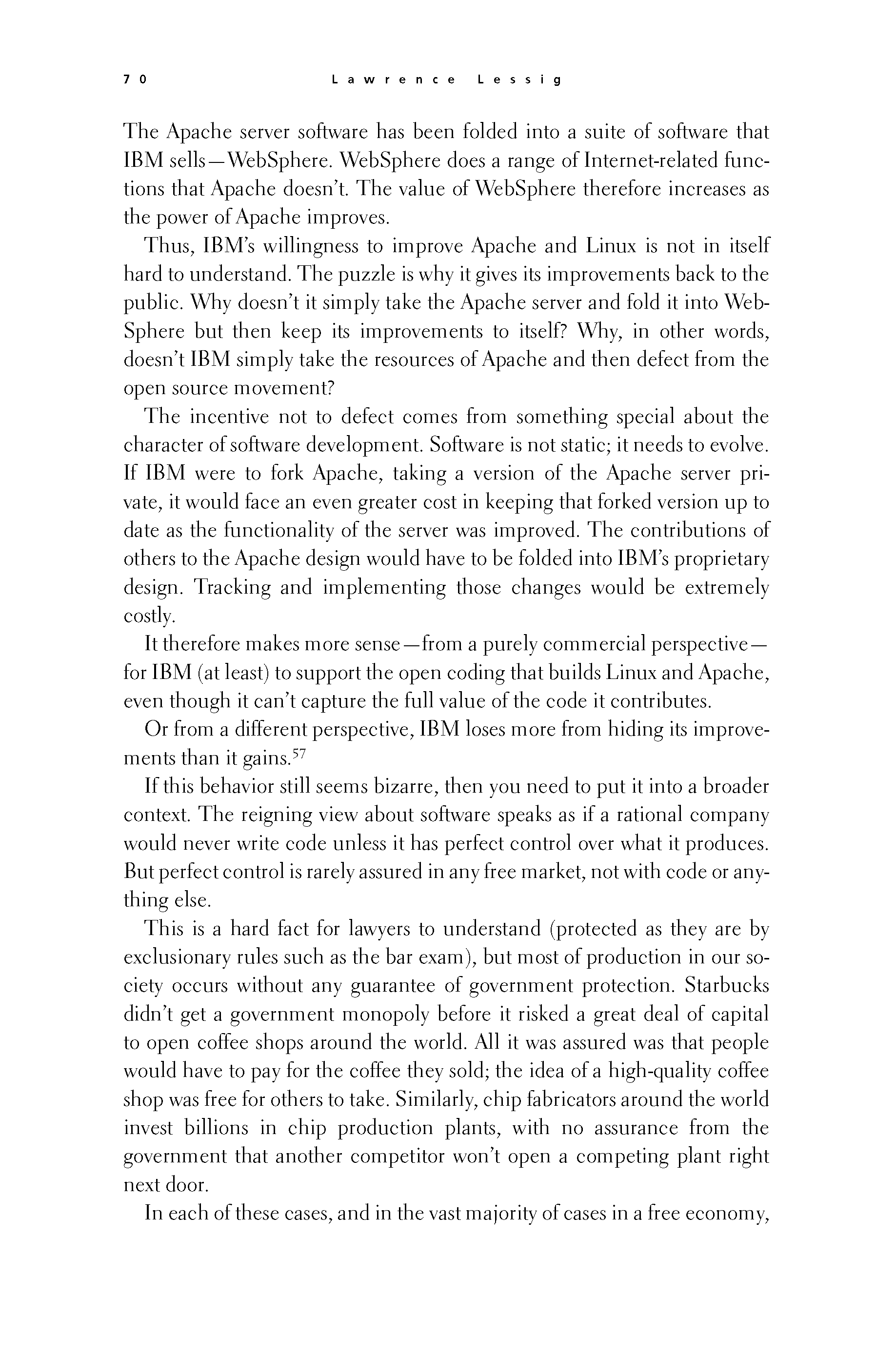 p069 _
-chap- _
toc-1 _
p070w _
toc-2 _
+chap+ _
p071
p069 _
-chap- _
toc-1 _
p070w _
toc-2 _
+chap+ _
p071
The Apache server software has been folded into a suite of software that
IBM sells -- WebSphere. WebSphere does a range of Internet-related func-
tions that Apache doesn't. The value of WebSphere therefore increases as
the power of Apache improves.
Thus, IBM's willingness to improve Apache and Linux is not in itself
hard to understand. The puzzle is why it gives its improvements back to the
public. Why doesn't it simply take the Apache server and fold it into Web-
Sphere but then keep its improvements to itself? Why, in other words,
doesn't IBM simply take the resources of Apache and then defect from the
open source movement?
The incentive not to defect comes from something special about the
character of software development. Software is not static; it needs to evolve.
If IBM were to fork Apache, taking a version of the Apache server pri-
vate, it would face an even greater cost in keeping that forked version up to
date as the functionality of the server was improved. The contributions of
others to the Apache design would have to be folded into IBM's proprietary
design. Tracking and implementing those changes would be extremely
costly.
It therefore makes more sense -- from a purely commercial perspective --
for IBM (at least) to support the open coding that builds Linux and Apache,
even though it can't capture the full value of the code it contributes.
Or from a different perspective, IBM loses more from hiding its improve-
ments than it gains.[4-57]
If this behavior still seems bizarre, then you need to put it into a broader
context. The reigning view about software speaks as if a rational company
would never write code unless it has perfect control over what it produces.
But perfect control is rarely assured in any free market, not with code or any-
thing else.
This is a hard fact for lawyers to understand (protected as they are by
exclusionary rules such as the bar exam), but most of production in our so-
ciety occurs without any guarantee of government protection. Starbucks
didn't get a government monopoly before it risked a great deal of capital
to open coffee shops around the world. All it was assured was that people
would have to pay for the coffee they sold; the idea of a high-quality coffee
shop was free for others to take. Similarly, chip fabricators around the world
invest billions in chip production plants, with no assurance from the
government that another competitor won't open a competing plant right
next door.
In each of these cases, and in the vast majority of cases in a free economy,
[[70]]
p069 _
-chap- _
toc-1 _
p070w _
toc-2 _
+chap+ _
p071